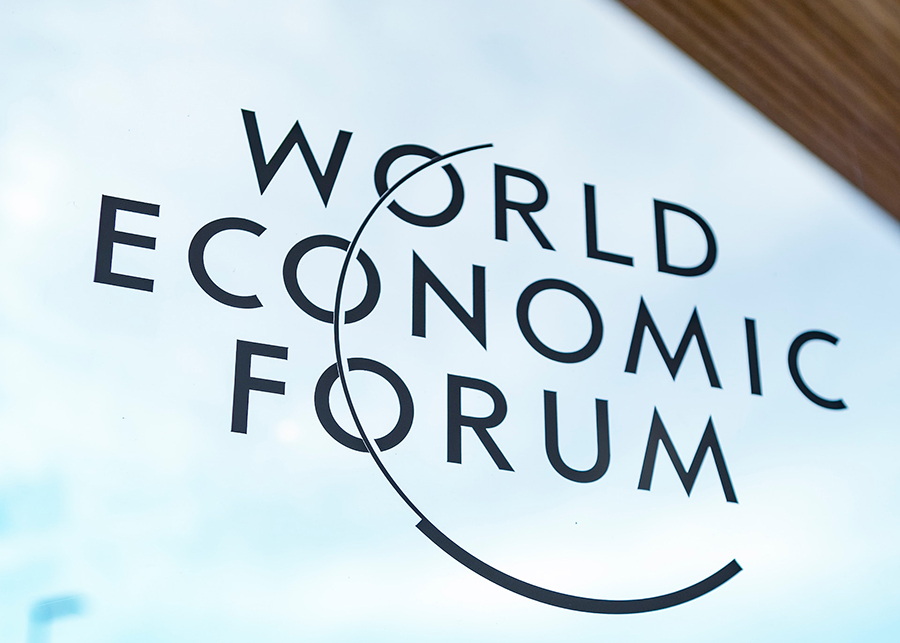The World Economic Forum (WEF) wrapped up its annual meeting in Davos last week, with global government and business leaders discussing the most pressing global issues. Davos 2024 put a special focus on climate change and energy security, as well as human health and the challenge of feeding the world.
Discussions highlighted the impacts of climate change on human health and the environment, and plans for urgent action to curb the climate crisis. Many Biotechnology Innovation Organization (BIO) members participated.
Here are key takeaways from Davos 2024:
1. The climate crisis is a health crisis
According to the World Health Organization (WHO), 2023 saw the most extreme weather changes on record, with unprecedented heatwaves, hurricanes, flooding, and wildfires. These kinds of weather events pose a serious threat to the health and livelihoods of more than one-third of the global population.
“We have to stop talking about (the climate crisis) measuring it in degrees Celsius and talk about it in lives,” ” said Bill Anderson, CEO of Bayer AG, a BIO member.
In a new report titled Quantifying the Impact of Climate Change on Human Health, developed in collaboration with Oliver Wyman, Shyam Bishen, Head of the Centre for Health and Healthcare and Member of the WEF Executive Committee, warns that by 2050 global healthcare systems worldwide will suffer due to climate change. This will cause $12.5 trillion in economic losses and $1.1 trillion in extra costs.
Bisham also estimates that floods could cause some 8.5 million deaths by 2050, in addition to 3.2 million deaths caused by droughts.
“Recent progress will be lost unless critical emission reduction and mitigation measures are improved, and decisive global action is taken to build climate resilient and adaptable health systems,” Bisham added.
Not all is doom and gloom though. The research points out that with joint action and a strategic approach, we still have time to curb the negative consequences of climate change. Global collaboration between stakeholders “across borders and industries” can help transform healthcare systems worldwide, and create a more “resilient, adaptable, and equitable” ecosystem.
2. Closing global health equity gaps is a global effort
A great example of global collaboration is the Zero Health Gaps Pledge, launched at Davos 2024 by the Global Health Equity Network (GHEN), a WEF initiative seeking to reduce inequity in both medical and non-medical drivers of health.
Co-led by Deloitte, the American Heart Association, and Harvard T.H. Chan School of Public Health, the Zero Health Gaps Pledge now has more than 100 signatories, including BIO members like AstraZeneca, Bayer, Pfizer, and Sanofi. Signatories agree to a range of actions, such as assessing health equity needs, constantly working toward health equality within their own organization, and assessing the impact of their equity efforts.
“The Pledge – and the broader work of the Global Health Equity Network – highlight the opportunity that public-private platforms like the World Economic Forum present to accelerate multistakeholder collaboration to address global health inequities,” WEF’s Bishen said.
3. We need to invest in sustainable farming practices to curb hunger
A growing population needs nutritious food – but how do we make it grow it more sustainably?
By supporting and working alongside farmers, and adopting regenerative agriculture pathways, says the new report by the 100 Million Farmers initiative, Breakthrough Models for Financing a Sustainable Transition.
“The key question is how to make the adoption of these production changes happen at the scale and pace required to meet global goals on climate, water, nature, and food security,” the report says.
According to the report, food systems contributed 30% of greenhouse gas emissions worldwide, in addition to 80% of deforestation and biodiversity loss, and 70% of global freshwater withdrawals.
The report suggests that the transformation of the food systems will require between $300 billion to $350 billion in capital investment annually through 2030.
The report also recommends building out models of financing, engaging investors or “financial actors” in the adoption of regenerative agriculture, building value for regenerative farming practices into the supply chain, leveraging public policy to strengthen the business case for the use of regenerative practices, and developing standard definitions and measurement to assist in monetizing ecosystem services from regenerative agriculture.
“The amount of R&D that goes into agriculture is amazingly small, given how important food is. It’s probably the most taken for granted resource on Earth – except among those who don’t have enough food,” Bayer CEO Anderson said in a panel, adding that we need clear regulatory pathways and close partnership between agriculture technology companies and environmentalists.
According to Anderson, if we want to feed our current, ever-growing population, we must harness new approaches and forget about “historical farming methods.”
Speaking at Davos 2024, Chris Abbott, CEO of Pivot Bio (another BIO member), argued that agriculture lacks capital allocation, adding that the societal and environmental benefits of agricultural investments are undeniable.




